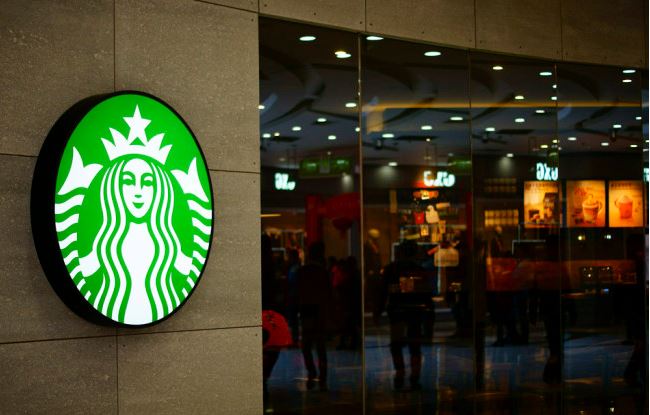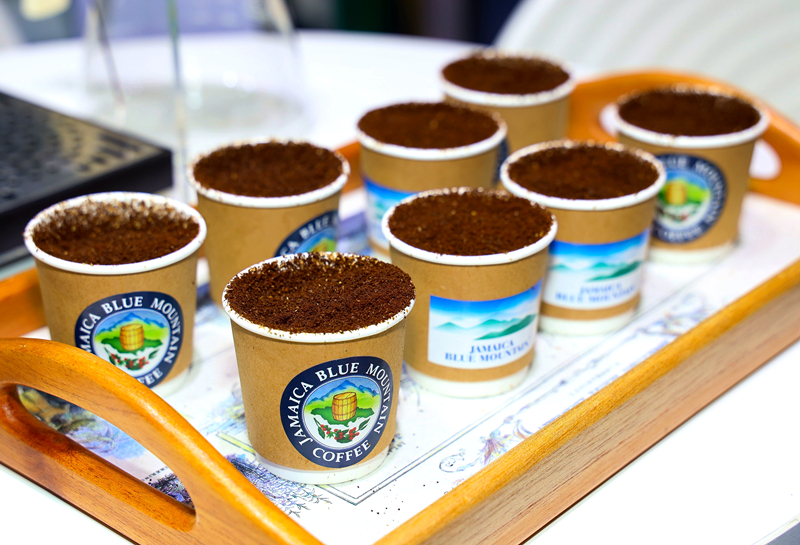
From the People’s Daily app.
And this is Story in the Story.
China is a place that has long been known as a country of tea-lovers. When we think of China, we usually think of the Great Wall and tea, but that is starting to change as more people are being introduced to coffee.
Although most Chinese associate coffee with Western lifestyles, they are increasingly warming to it, especially in large cities like Beijing, Shanghai and Guangzhou, capital of Guangdong province.
A growing number of Chinese have started to habitually consume the caffeinated beverage, and they are helping make the nation's market for the drink the fastest-growing in the world.
Chinese coffee consumption has been growing by around 20 percent a year and nearly tripled in the past four years.
An International Coffee Organization report released last year said Chinese coffee imports grew by 16 percent year-on-year in 2017, compared with about 2 percent in the United States, the world's largest coffee consumer.
Today’s Story in the Story looks at why coffee is becoming so popular in tea-loving China.

A Starbucks shop in Yichang, Hubei Province. (Photo: China Plus)
Oddly enough, most coffee now being consumed in China is not from Africa or South America. According to a report by the international trade statistics database UN Comtrade, the top three coffee exporters to the country are Vietnam, Malaysia and Indonesia.
The country's fast-expanding middle class has become used to buying and drinking latte, cappuccino and other forms of the drink in coffee shops. Demand, especially for hot, fresh coffee is rising. This expansion has led to many leading coffee shop companies opening more stores in China.
"The Western lifestyle is attractive to upper-and middle-class urban consumers," said Esther Lau, an analyst with market research company Mintel.
The main outlets in China are Starbucks, Costa Coffee and McDonald's, with smaller companies occupying 25 percent of the market. In Shanghai there are now more than 6,500 coffee shops.
Starbucks, which opened its first shop in China in 1999, is the market leader. China is home to the biggest Starbucks branch in the world – its 30,000-square-foot Reserve Roastery in Shanghai is nearly twice as big as its US counterpart in Seattle.
"We are committed to long-term investment in China," said Kevin Johnson, Starbucks president and chief executive officer, who expressed confidence in the company's future growth in the dynamic market.
He said the company will continue to promote coffee culture in China "where the reward will be healthy, long-term, profitable growth for decades to come."
To cater to Chinese tastes, international coffee chains have adapted their menus to include more blended and tea-based drinks. The specials on offer at Starbucks include a green tea java chip frappuccino along with green-tea-flavored cake.

Jamaica Blue Mountain Coffee is displayed at the China International Import Expo in Shanghai last month. (Photo: China Daily)
Igor Carneiro, head of trade and investment promotion at the Brazilian embassy in Beijing, said his country is targeting the high-end Chinese market and hopes to export a coffee-drinking culture to it along with related products.
"Drinking coffee is inherent in Brazilian culture," he said, adding that Brazil is trying to target China's growing number of high-end consumers because many coffee growers in the South American country believe a smaller market comes with higher value.
So, what makes coffee so appealing? The more sensitive people are to the bitter taste of caffeine, the more coffee they drink, reported a study published in Scientific Reports.
People who were more sensitive to caffeine were drinking a lot of coffee and consumed low amounts of tea. The sensitivity is caused by a genetic variant.
Brian Williams, a coffee journalist who visited Shanghai and Beijing in 2016 and 2017, agreed that he has seen growth in the industry over the last few years. “I can’t speak to the mass market, but in the high-end, specialty sector, shops are opening all the time,” he said.
Last month, China International Import Expo in Shanghai featured coffee traders, producers, beans, machines, imports and exports. Wu Jiahang, from the Colombian Coffee Growers' Federation was an exhibitor and said he is constantly striving to bring his country's coffee to Chinese consumers.
"From high-end products to ordinary ones, coffee has been witness to China's reform and opening-up, and the expo has been an ideal opportunity to ensure that more Chinese coffee drinkers know about our coffee," Wu said.
(Produced by Nancy Yan Xu, Brian Lowe, Lance Crayon and Da Hang. Music by: bensound.com. Text from China Daily and China Plus.)


